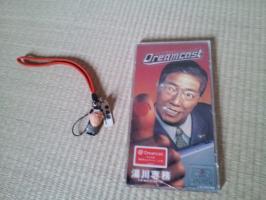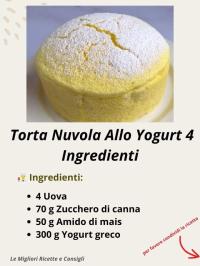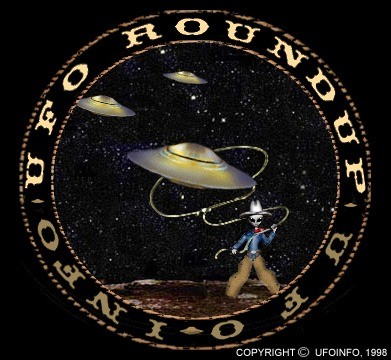75. Tamil Folk Songs

I just recently plugged into soc.culture.tamil and was delighted to see numereous interesting posts such as Guntur Balaji's 'cute' Haikus and verses. Enthused by all these, here I am, with my very first post - about Tamil folk songs.I recently got a five cassette volume of 'Tamil folk songs' sung by Dr. Vijayalakshmi Navaneethakrishnan and party. This is probably one of the most thrilling collection of music I had put my hands on in recent times. I thought I would share my impression of these cassettes with you, even though I am not really an expert on 'Tamil folk songs'. But then, when has ignorance ever stopped any of us from expressing our opinions ?
The five tapes are arbitrarily divided into categories like 'Themmangu', 'Patti-Thotti paadalgal', 'Gummaala paadalgal' etc. I fell in love with Prof. Vijayalakshmi some three years ago when I saw her on Madras TV. Both Dr. Vijayalakshmi and her husband, Dr. Navaneethakrishnan are professors in Tamil folk studies at Kamarasar University in Madurai. They have done years of research in Tamil folk songs. While Vijayalakshmi is usually the main vocalist, her husband and their numerous students perform the 'village dance' - surely a fun way to earn a Ph. D.
Vijayalakshmi, the singer, is a tremendous performer. She is very good-looking, with excellent telegenic gesticulations. When she sings, her style is deceptively simple, her gentle clapping to mark time is so unexaggerated that she almost makes the whole thing - very rustic. But believe me folks, it is very tough to sing some of those songs. Her voice range, her mastery of the nuances and above all, the emotion that comes out, are something you really have to experience. Kollangudi Karuppayi probably had a much more booming, mature, 'folksy' voice and the quick wit. But, for the totality of the Tamil folk song experience, no one can beat Dr. Vijayalakshmi at present.
I have been a keen student of music, Hindustani and Karnatic classical systems, Western classical etc. Despite my efforts, I haven't had much luck with Indian folk music, especially tamil rural music, even though in the recent decades, Ilayaraja et al have brought such esoteric music to every snob's living room. It is not easy to catalog something like Tamil folk music into a single theoretical, conventional framework and 'study' it. It is as varied as the Tamil culture itself. For example, the music of two centuries ago can be vastly different from the music created at the beginning of this century. Most of Vijayalakshmi's songs seemed to have been composed in the last hundred years or so. I simply inferred this from contextual references to 'Motor vandi' and such.
Also, several songs were composed based on common Karnatic ragams, such as Hindolam. (Of course the styles are completely different) This too is a recent phenomenon and could point to the period of these songs. Because several centuries earlier, it was the other way around with some folksy tunes getting incorporated into Karnatic music system as new ragams. Songs of those days, like 'Kavadi Sindhu' or 'Sithar padalgal' and 'Kuravanji' etc are accepted into the Karnatic music system these days and are routinely played in several Karnatic music concerts.
Also, for some curious reason, most of Vijayalakshmi's songs seem to have originated in the Madurai - Ramanathapuram area, with almost nothing coming out of the other parts of Tamil Nadu. While this may explain why a genius like Ilayaraja came out of those parts, I wonder if Madurai area has a monopoly on Tamil folks songs. Anyone out there who knows more ? Or is it simply Vijayalakshmi's bias ?
When you listen to tamil folk songs, the thing that hits you the most is the intensity variation - the modulation, sudden up and down in intensity (and sometimes in frequency) - none of the 'glide' or the 'brighas' or microtonal acrobatics of the classical music system. Just to give you an example, if you had listened to 'Inji iduppalaga' in the recent movie 'Thevar Magan', at the end of the fourth line ('Marakka manam koodudhillaye') the singer raises her voice. Another example, (I think from the movie 'Vaaname ellai') from the song 'Kambangaadu' - the second time the singer goes 'Kambangaadu', he raises his voice on the 'kaadu'. A more blatant exhibition of such voice gymnastics is the 'ullulation' (my spelling may be wrong) when a chorus of women go into a loud, short, high pitched scream, to punctuate a song - Ilayaraja employs this often.
An example I always give as a quintessential Tamil folk song is from the movie 'Karagattakkaran' which goes 'Mundhi mundhiri naayagane'. This clearly brings out the simple melodic grammar of folk songs vis a vis, classical system. Pure, raw emotional impact seems to be more important than any ornamental presentation. Even the musical instruments complement this. Nayanam, a downsized version of Nadaswaram or simple string instruments like Villu or Kottangachi violin are often the only ensemble with relentless, simple drums like Melam (a cousin of tavil) or Udukkai or Tambattam. I haven't seen much use of flutes, although the Vijayalakshmi tapes had a lot of flute. This is probably because Deva, the movie music composer, conducted the music for Vijayalakshmi. (In some songs, there was even a background of birds chirping and such artificial studio things, which I personally disliked)
And of course, what are Tamil folk songs worth, but for the lyrics ? These days when a boring, thematic development of a simple idea like 'Chinna chinna aasai' can win National Awards, lyrics in Vijayalakshmi's tapes might seem like they are in sanskrit. Often, the lyrics are not massaged to fit the melody of the song. And sometimes they zip so fast or use archaic words and concepts. For example, the modern, pop-culturized, western educated mind might take several minutes to digest 'Sandhaikku poyittu, thinnaya mozhugi, paaya virichi ...' (Translation: 'Return from the market, mop up the 'yard' (?) and spread the mat.') But once you dig the meaning and its implication, you are as enlightened as a Budha under a bodhi tree and the joy in unmeasurable. You learn that a travel from Madurai to Pudukkottai can be an adventurous odyssey. (Of course, if you are from Madurai, the world ended at Pudukkottai, in those days) You are amazed at how a dejected woman deals with failed love with nonchalant, 'Karma'sque, earthiness. Or a simple devotional song to 'pillayar' is worded as if the 'pot bellied one' is the singer's closest personal friend.
It is an entire another world ! Heck, these days even a concept like 'Inji iduppalagi' can cause numerous debates, amazements and interpretations - and no wonder a present day tamil writer, a folk lyricist wannabe, who tries his or her best to 'compose' such folk songs ends up being so artificial and pathetic. It is not easy to re-invent something that the Tamils were good at, just a few lousy decades ago - what with all our villages getting quite modern and the only places one can go to see a true village is in the movies.
Just one final example to drive home the point. One of Vijayalakshmi's songs had a verse which goes,
'Ottu malai orathile Oosi vikka pogathey Kaanja kothu malli'
(Translation: 'Don't sell needles on the slopes of Ottu hills, my dried bunch of jasmine'.) Sounds spooky and meaningless, right ? A modern day analog would be, from Pulavar Iramesan,
'Rocky malai orathile Thesis seyya pogathe Minjiyulla pizza thunde'
(Translation: 'Don't do your thesis on the slopes of Rocky Mountains, my left-over pizza slice')
Whatever ! Call your friends, family or when you go home to India, make sure you get these tapes. PS: Thanks to 'Undy' Anand for getting me the tapes and 'Chiddy' Chidambaram for listening to some of them with me and tolerating my interruptions and offering his comments.




















